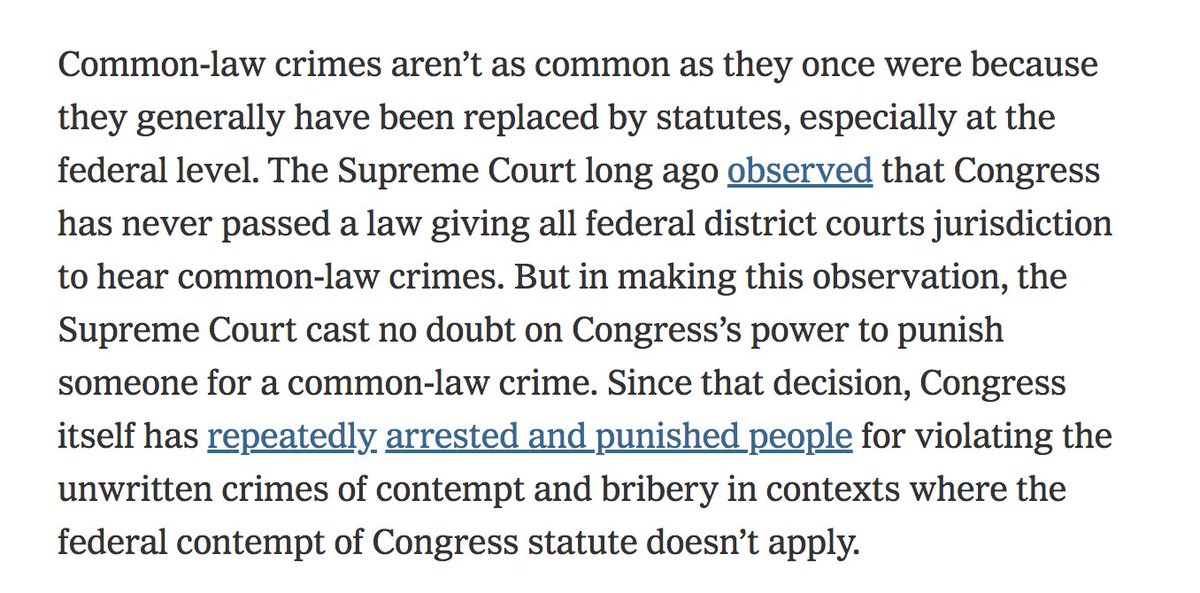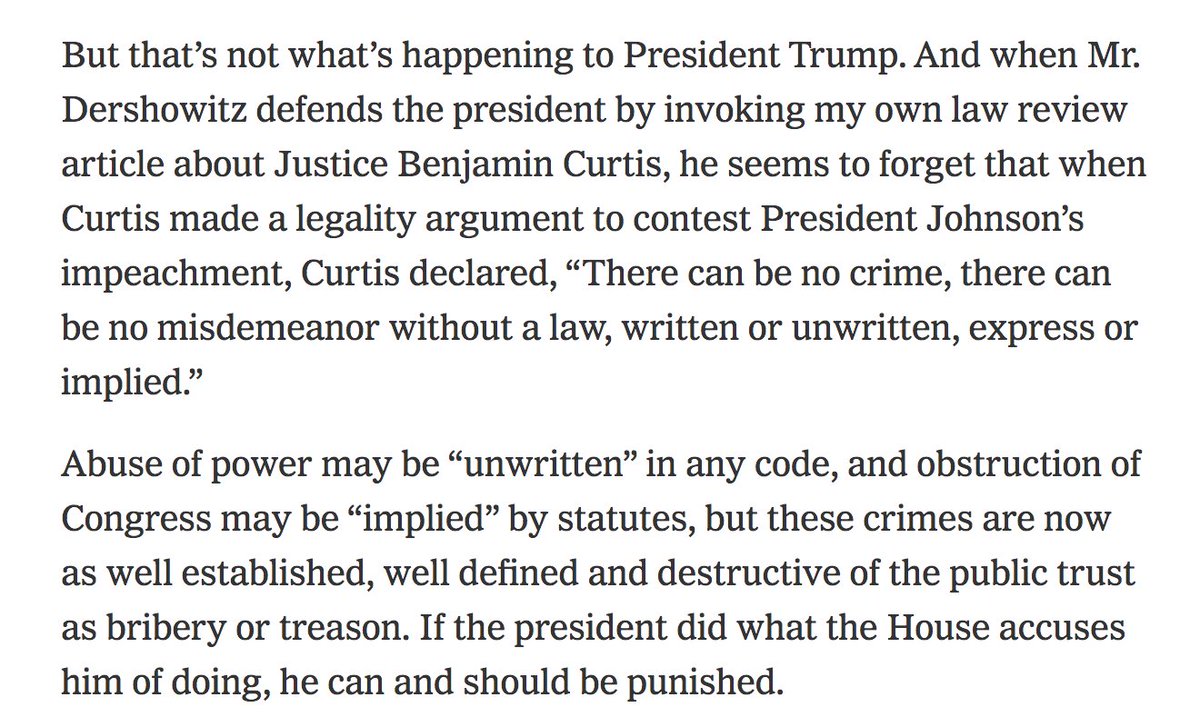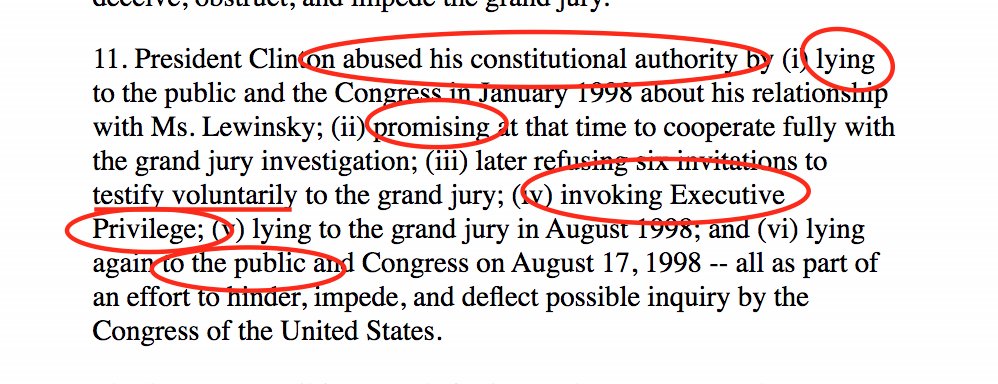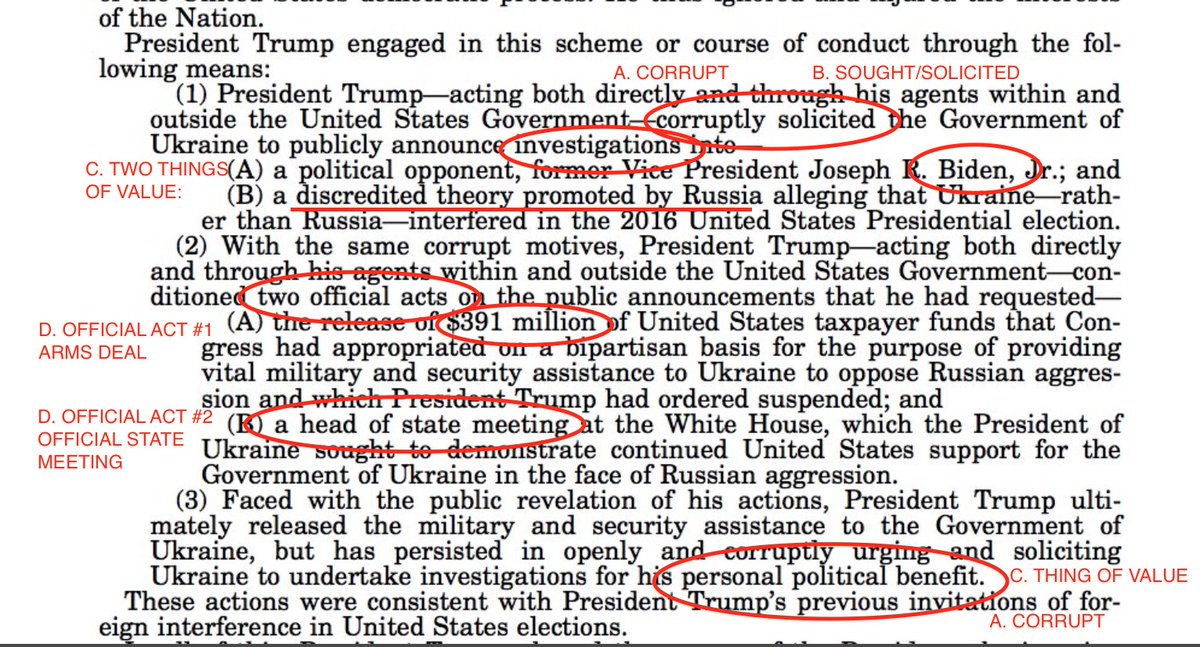The House Report is where you find the application of law to acts.
Analyze the content of the Articles and the Report.
Dersh just argued about titles.
1. CONSTITUTIONAL BRIBERY
2. CRIMINAL BRIBERY
Element by element, p. 118-126.
Read it here:
docs.house.gov/billsthisweek/…
He relied heavily on @nikobowie's 2018 article, but didn't understand when Bowie clarified his argument:
Impeachment requires crimes, but they can be COMMON LAW crimes, not just statutory crimes.
That's a big deal.
nytimes.com/2020/01/27/opi…
He clarified his article to explain that his historical sources understood that impeachment included common law crimes.
And Niko explained clearly how common law crimes, tho not enforceable in courts, could apply in Congress.


He was either unable or unwilling to read Niko's two clear sentences in a short op-ed that clearly explained:
SCOTUS "observed that Congress has never passed a law giving fed courts jurisdiction to hear common-law crimes. But in making this observation, it cast no doubt on Congress’s power to punish a common-law crime."
Bowie is right: The Supreme Court said *federal courts* have no inherent power to enforce common law crimes.
But 1. Congress could've given them that power.
2. Congress can rely on common law crimes
like ABUSE OF POWER in impeachment.

I made some of these points earlier in @slate:
If the Senate won't hold a real trial, then NY state prosecutors can.
On federal bribery/state extortion conspiracy, among other crimes.
And they can subpoena Bolton etc.
Starr & Ray yesterday: Abuse of power & invoking privilege are so not impeachable.
Starr & Ray, 1998: Grounds for Clinton Impeachment:
*Abuse of authority
*Invoking privilege
*Lying to public















